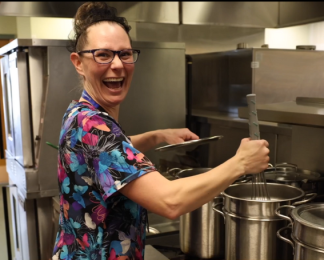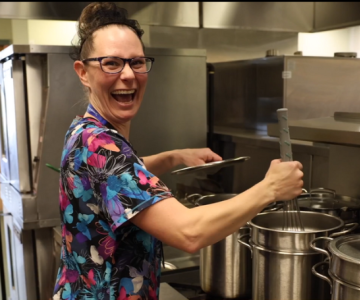Advance Care Planning
Advance Care Planning is about thinking about and writing down your wishes or instructions for present or future personal and health-care needs in case you are not able to make decisions for yourself.
Learn about adults’ health-care services in areas such as advance care planning, fall and injury prevention, immunization and tobacco reduction.

Advance Care Planning is about thinking about and writing down your wishes or instructions for present or future personal and health-care needs in case you are not able to make decisions for yourself.
Adults and seniors may receive vision services through private community providers. Please contact the BC Doctors of Optometry for a provider in your area.
Nearly 10 per cent of the Canadian population experiences some form of urinary incontinence (i.e., losing urine when you don’t want to). Despite treatment options available, far too many Canadians continue to suffer in silence because they are embarrassed to talk about symptoms with their physician. Incontinence doesn’t have to be a “normal part of aging” – almost all cases of urine incontinence can be treated, managed or cured.
Review the following resources:
We provide hearing services to children and youth (0-19 years). Adults and seniors may receive hearing services through private community providers. Please contact the College of Speech and Hearing Health Professionals of British Columbia for a provider in your area.
If you have trouble finding a private service provider, you may contact your local public health hearing services clinic for assistance.
Chronic Disease Management involves care and support for chronic or long-term conditions such as chronic obstructive pulmonary disease (COPD), heart health, kidney health and diabetes.
Review the following resources on various chronic health conditions:
Many vaccines are recommended for adults, some of which are given free. All adults in British Columbia can get a booster of tetanus and diphtheria vaccine every ten years.
By the time we reach 40 years of age, half of us will have had or will develop a mental health problem (Source: Canadian Mental Health Association). If you or someone you know is struggling with mental health or substance use – you’re not alone. Support is available.
Learn more about:
We work with agencies to support adults with learning disabilities (Community Living British Columbia clients) and acquired brain injuries.
Learn more:
Our Tobacco Reduction Program works with Interior Health staff, local government, Indigenous communities, non-governmental organizations, school districts, and others.
More than 50 per cent of cancers are preventable. What you eat, whether you smoke, your level of activity, and how you spend time in the sun are all lifestyle choices that can affect your chances of getting cancer - and your chances of preventing it.
Since one in every three Canadians will be diagnosed with cancer at some time in their life, let’s get serious about our health with a healthy lifestyle, awareness of warning signals, and involvement in screening programs.
For more information, contact the cancer service programs in your hospital, the Canadian Cancer Society or the BC Cancer Agency.
While we can’t change our genetic background (only 5-10 per cent of all cancers are related to an inherited gene mutation), we can make better choices for a healthier future. These include:
Eating a healthy diet that includes grains, lots of fruits and vegetables, lower fat, dairy and meat, and limiting salt, caffeine and alcohol
Maintaining a healthy body weight to guard against obesity
Exercising regularly (e.g., one hour of light walking every day or 30-60 minutes of brisk walking four to five times a week)
Eliminating unhealthy activities, such as smoking and excess exposure to sun (including tanning)
Practicing safe sex and limiting your number of sexual partners, which decreases the chance of acquiring Human Papillomavirus (HPV), a contributory cause of cervical cancer
Ensuring your child is up to date with their Hepatitis B vaccinations and asking your public health nurse or family doctor about HPV vaccination if you, your children or those in your guardianship are between the ages of nine and 26
Early detection and diagnosis are the keys to treating cancer with any degree of success. Pay attention to warning signals:
Change in bowel or bladder habits - a change in your normal pattern that persists
A sore that does not heal
Unusual bleeding or discharge
Thickening or lump
Indigestion or difficulty in swallowing
Obvious change in wart or mole
Nagging cough or hoarseness
Participating in regular cancer screening programs is essential to early detection:
Breast: People aged 40-79 can book screening mammograms directly with BC’s Screening Mammography Program (SMP). Be aware of how your breasts look and feel, and see your doctor right away if you notice any changes.
Prostate: People with prostates aged 50+ should talk to their doctor about the benefits and limitations of PSA (prostate specific antigen) testing. The test is available through your doctor. If you’re 50-70 years of age you should have an annual Digital Rectal Examination by a physician.
Colon: People aged 50-74 should have a fecal immunochemical test (FIT) every two years. If you have a personal history of non-cancerous lumps or tumours (adenomas) or significant family history of colon cancer, a screening colonoscopy is recommended instead.
Cervix: People with a cervix should start having Pap tests at age 21 or three years after first sexual contact, whichever occurs first. Pap tests should be done every year for the first three years, followed by every two years if your results are normal until age 69. Talk to your health-care professional about being tested after age 69 if your results have not always been normal.


Those with dementia need special consideration during the holidays. Read our tips and advice to make the holidays enjoyable for everyone.
/stories/supporting-loved-one-dementia-during-holidays


Loreen’s ability to keep calm under pressure, paired with her caring nature, have been integral to her success and to the quality of care that she provides.
/stories/we-are-ih-experienced-nurse-always-steps-when-needed


Many people like to do the Dry January challenge, but going dry isn't for everyone. Gain tips on reducing your alcohol consumption in the New Year and beyond..
/stories/thinking-going-dry-january-going-damp-great-option-too


As we come to the close of 2024 we pause to reflect on the year and celebrate our achievements. Watch our short video of this year’s highlights across IH.
/stories/looking-back-and-celebrating-2024


All's well that ends well: For Kelowna health unit aide JQ, this simple phrase is more than advice—it’s a way of life.
/stories/we-are-ih-health-unit-aide-brings-positivity-every-day


The winter and holiday season can bring joy, but can also bring stresses and challenges. Explore these 10 tips for supporting for mental and physical health.
/stories/10-healthy-habits-winter-and-holiday-season
Receive news and alert posts, and Stories@IH blog posts, right to your inbox!
